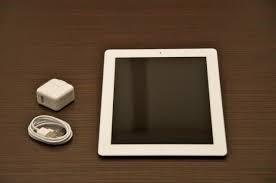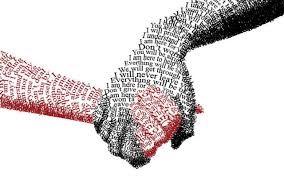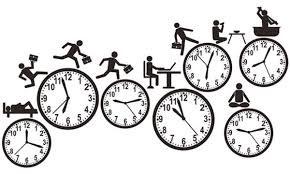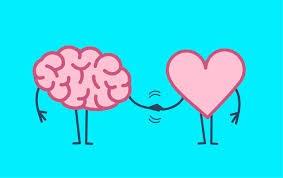Teaching & Learning

Assessment and Reporting Process for Term 2
We have received advice from the Department of Education and Training regarding modifications to the Semester One reporting that takes into account the limitations on the ability of teachers to accurately assess student progress during the remote learning period.
As always, you will receive a report for your child outlining their progress in Semester 1, 2020 against the Victorian Curriculum. The report will look different, however, as it is not possible to implement our standard report writing process.
Below are some dates for the diary. Each of these events will be explained in more detail as they draw closer.
Report Writing Day/ Finishing Off Day – Friday May 22
In order to assist with getting the reporting process underway, this Friday May 22 has been allocated as a day to pause and reflect on the learning that has occurred over the past several weeks. Teachers will be using the day to start the report writing process and students are asked to look back over their learning tasks and complete any that have not been finished or submitted. This will also be a good time to ensure our social and emotional wellbeing is attended to by pausing and taking stock of the events of the past 8 weeks and thinking forward to create a plan for your child’s return to school.
Therefore, this Friday May 22:
- Teachers will not be conducting morning check-in or conferences throughout the day.
- Students will be able to access their learning tasks to finish off (or start) learning tasks and specialist tasks that have not been completed.
- On-site learning will continue as normal with the same process being followed by our staff at school.
We will support your child to help understand this process in the days leading up to Friday.
Once again we thank you for your support and we are all looking forward to having the students back at school over the next few weeks. If you have any questions, please don’t hesitate to contact me.
IPad Returns
During the the remote learning program, the school has leant out over 100 devices to support students with their online communication and school work. This has worked exceedingly well and we thank students, parents and families for taking great care of these devices throughout.
As students return to school, it is time to collect these devices back and distribute them to classrooms for use in the teaching and learning program.
If you have borrowed a school iPad for this period, you will receive a phone call this week to book in a time to return the device and charger. You will also receive a letter outlining the process.
The letter will provide more details around the following:
- Ensuring the device, charger and protective cover is cleaned and in good working order.
- Returning iPad at your designated time.
- Signing the iPad in.
- Signing a damage or loss form that outlines the replacement or repair process.
Returning to the Classroom – What can you expect?
As you have read on the previous pages, there is a lot of work being down to ensure the transition back to the classroom is smooth and safe for students, teachers and our extended Buninyong and Scotsburn community. But what about the kids, what will they be experiencing and what can they expect when they walk back into the classroom for the first time this term?
From reports following major pandemics or life changing events around the world we know and are prepared for a broad spectrum of behaviours when students return to class for the first time following a lengthy absence from school. We also know that the behaviours don’t all belong to the students, events like these evoke a broad range of responses from the adults in their lives as well. So how will teachers support this broad spectrum of behaviours?
Laying the groundwork:
To help create a smooth, calm and safe transition back into school our teachers started almost 10 weeks ago by deciding to make conferences and daily check-ins central to the remote learning plan. By meeting regularly, we are giving ourselves the best possible chance for your child to return with a strong connection to their teacher or education support staff member and possibly even connections to their peers.
Routines and Rituals
In the first week, your child’s teacher will be reintroducing the routines and rituals of the classroom and the learning behaviours associated with each. Such routines could include morning greetings, mindfulness, monitor roles, reading, writing and maths processes and eating habits. By re-introducing the routines and rituals, the familiarity of the classroom should quickly return giving students confidence to be in and around the classroom. Of course there will be a few new routines that will ensure our students have good hygiene habits to remain safe.
Empathy and Understanding
This unprecedented event has meant that every student’s experience has been quite different from their peers. The broad range of experiences will lead to many different behaviours being exhibited when students return to school. Teachers will be on the lookout and will be responding with empathy and care. This might be the smile and greeting in the morning or the quiet chats during class or at break times to reassure and build confidence. Your child’s teacher will be looking for opportunities to talk about their experiences and help explain the world around them.
Reconnecting Social Interactions
After such a long time away from their friends, teachers will be looking to support your child to connect with their peers. Some will reconnect quickly and others will take longer to adjust and find their place. Teachers will be ensuring your child has play options as they head out to break times to assist in re-establishing connections between friends.
Reintroducing Academic Emphasis
Throughout the first week teachers will be looking to make learning explicit and engaging for your child. The learning will most likely begin with familiar skills and slowly move to building new understandings. Your child will be part of small group or individual conferences in reading, writing and maths over the first few weeks to assist teachers in understanding exactly what their needs are.
These are just some of the many strategies that will assist in the smooth and safe transition back to school. If you have any concerns or questions, please don’t hesitate to contact your child’s classroom teacher through Compass.








